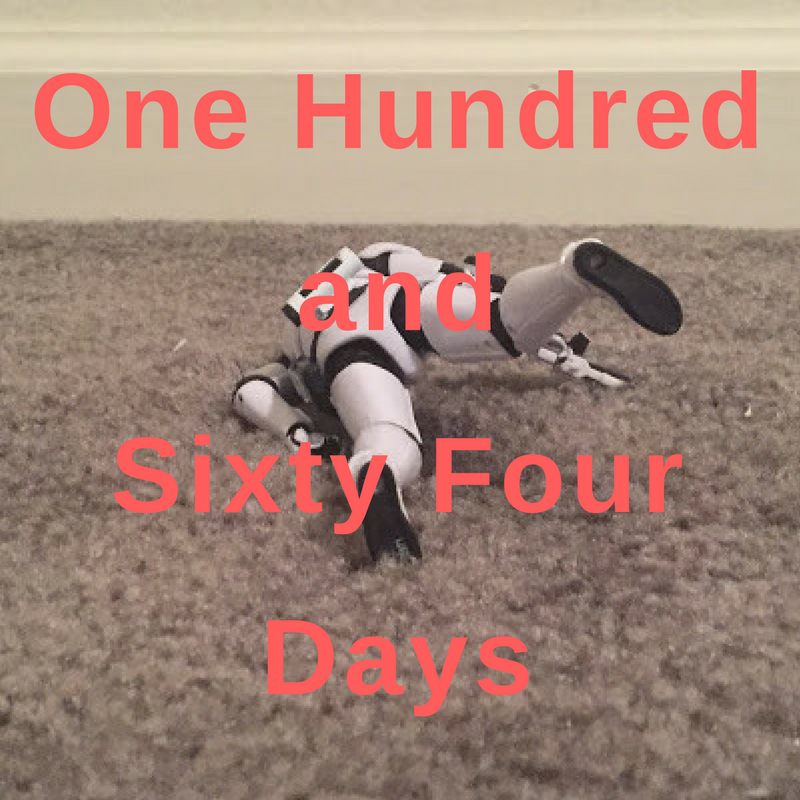Friday, December 18, 2015
Thursday, December 17, 2015
Blue Milk
Back in 2005, I knew. It was obvious. Even if they said it was over, and there would never be any more, it was clearly a lie. Some day, there'd be more. No time soon. But eventually.
And sure enough, I was right. You didn't need to be a rocket scientist to figure that one out. Eventually, something had to give, and that "something" was George Lucas. Either he would give in to the temptation himself, or allow others to move on without him. The first, while improbable in hindsight, was always a possibility, even given the venomous fallout of the Prequels. Lucas heeds no counsel but his own. It was said in the wake of the Disney sale that one of the main factors that prompted the sale was that he didn't want to direct the sequel trilogy which he knew would eventually be made. So he chose the second option.
He did it in the most irrevocable way possible. He could never be content to hire another set of hands and merely supervise. He was too old to want to collaborate. It was best to walk away, and the best way to walk away would be to give it away. So he took the payday and gave his blessing. His notebooks and ideas were part of the deal, but they didn't want those. Just as well. Clean slate.
Star Wars started out as an idea George Lucas had that he developed with a tight-knit group of friends and partners. When Star Wars got big and stayed big, the friends and partners fell off, until Lucas was the last man standing. His name was on the company, after all. So what if something was lost? It had to change anyway.
How to criticize the Star Wars movies? They simply are. If you're with me, you're with me, and if you're not, you're shaking your head. They're just movies, after all. But even after everything else falls by the wayside, it's never quite so easy . . .
They're still special because they're so few. Cut away the ancillary products, and you've got six movies: three essential and three inessential. The latter three are beloved by many but also loathed in equal measure. Now that there's a new series of movies, designed specifically to turn back the clock and pretend the "bad" Star Wars never happened, those other movies can finally breath, be their own weird thing with their own fans and controversies in their own corner of the landscape, without the pressure of being the only other Star Wars, with all the high emotions such a status implies. Now there's new Star Wars to argue about.
But it won't be the same. As much grief as he got for it, Lucas never consented to give the fans what they said they wanted. He had his ideas and they weren't all great ideas but at the end of the day it was his vision - if you want to use such a degraded word. All the other people with a claim to have shepherded Star Wars at any point in its development were gone. Those later films, warts and all, were inarguably his, and that's what makes them so interesting and (for those of us who do love them, warts and all) compelling. It's OK not to like them. But even if you wind up preferring the new Star Wars movies to the last series (something that seems very likely as of this writing), it will be impossible to argue that they're somehow more legitimate just because they're more ingratiating. Regardless of whomever else was involved, the common denominator for all previous Star Wars was George Lucas. This new model might be good, but it'll never be the same.
Maybe that's it: I'd rather have something imperfect and weird from George Lucas than a streamlined and perfectly satisfying sequel product constructed by the Disney corporation to hit all the right nostalgia buttons. It's not my fault I just happened to be born at the right moment to have those films imprint on me like a baby bird. The relative scarcity of Star Wars material made the movies rare and special in a time before cultural ubiquity. This is why the brand is so valuable. There's still, after almost forty years, only those six movies. Everything else is ancillary. There are literally hundreds of hours of "official" Star Trek in canon, same with Dr. Who (although let's not mention "canon" and "Who" in the same sentence, I'm just talking about the broadcast TV show), but . . . still only the six Star Wars movies, the same six movies to watch and parse and argue over and build elaborate Expanded Universes and Wookieepedias around. But not after tonight, and never again. (The fact that The Clone Wars and Rebels are also considered inviolable canon problematizes this slightly, but a large majority of Star Wars fans get by just fine without ever having seen either.)
Disney is good at what they do, the well isn't going to run dry anytime soon. But it'll never go away again, and it'll never be special quite the same way. Marvel will never again be the slightly disreputable upstart with vague counter-culture cachet, either.
Back in the summer of 2005, I knew as I watched Revenge of the Sith that this was the last new Star Wars film I'd ever get to see - while at the same time somewhere else in the back of my brain I knew that was impossible. Somewhere in the future, like a beast in the jungle, there was more Star Wars waiting for me - but it was so far off as to be academic. Honestly, ten years is sooner than I anticipated. How odd to think it's actually happening.
That last scene with Obi-Wan handing off baby Luke to Owen and Beru, before walking off into the desert - I would have been content for that to be the last shot in Star Wars, ever. It's a beautiful shot, almost cheap because of the way it plays on the visual rhyme with the first film, but fair game in the context of a film series constructed on rhyming shots and sequences. That's why it works, and that's part and parcel of the franchise's appeal.
By the summer of 2005 my marriage was on its last legs, even if I didn't know it yet. My ex was a good sport about going to see Star Wars with me, even if she didn't really care. But she was miffed after that, I remember clearly. "You cry at the end of Star Wars but not for our marriage." I guess I knew Star Wars would last longer.
Subscribe to:
Posts
(
Atom
)




